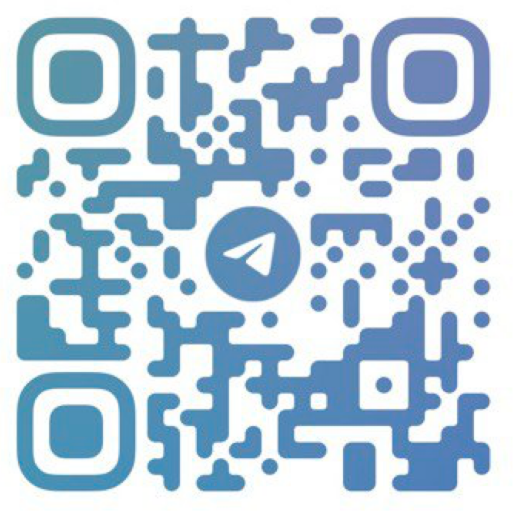Blockchain and Smart Contracts: The Twin Wings of the Digital Revolution
Blockchain and Smart Contracts: The Twin Wings of the Digital Revolution
I. Introduction
Blockchain and smart contracts are two critical digital technologies that are having a profound impact on modern society. Blockchain is a decentralized distributed ledger technology, composed of a series of interconnected data blocks that ensure tamper-resistant information storage. Smart contracts, on the other hand, are a crucial application of blockchain technology, representing computer programs that automatically execute contract terms without intermediaries. As technology continues to evolve, blockchain and smart contracts are poised to play an even greater role in the future, becoming key drivers of social progress.

II. Introduction to Blockchain Technology
Blockchain technology is a decentralized distributed ledger. It achieves secure storage and transmission of information by recording data across a network of multiple nodes. Each transaction is recorded in a data block, with each block containing information about the previous one, forming a chain, hence the name "blockchain." Blockchain technology is now widely applied in finance, supply chain management, digital identity authentication, among other fields, bringing about numerous innovations and transformations.
III. Definition and Functions of Smart Contracts
- Definition
Smart contracts are computer programs that automatically execute contract terms and conditions. They are deployed on the blockchain and execute predefined code based on specific conditions without the need for intermediaries. Smart contracts ensure that transactions or agreements automatically take effect when specific conditions are met, facilitating automated contract execution.
- Functions
This automation makes business transactions and data exchanges efficient, secure, and eliminates unnecessary trust and intermediaries. Smart contracts find widespread applications, from enabling automated cryptocurrency transfers to facilitating supply chain logistics tracking, offering seamless automation for transactions and collaborations.
IV. Application Scenarios of Blockchain and Smart Contracts
Blockchain and smart contracts find diverse applications in various real-world scenarios, including:
- Cryptocurrencies: Blockchain technology's first application was in Bitcoin, a decentralized digital currency enabling secure transactions without central authorities. Smart contracts ensure automatic execution and fund transfers within cryptocurrency ecosystems.
- Supply Chain Management: Blockchain and smart contracts enable supply chain traceability and management. Recording product information and transactions on the blockchain enables real-time monitoring of logistics, verifying product authenticity, and ensuring supply chain transparency and credibility.
- Digital Identity Authentication: Decentralized digital identity authentication systems can be established using blockchain and smart contracts. Personal identity information encrypted on the blockchain allows users to control and share their personal data through smart contracts, enhancing authentication security and privacy.
V. Advantages of Blockchain and Smart Contracts
Compared to traditional technologies, blockchain and smart contracts offer several advantages, including:
- Decentralization: Blockchain is a decentralized technology, where data and transaction information are distributed across multiple nodes without central control. This decentralized nature eliminates single points of failure, making the system more robust and reliable.
- Security: Blockchain technology employs cryptographic algorithms to ensure data security and integrity. Each data block contains the hash value of the previous one, forming an unchangeable chain, making data tamper-resistant.
- Trustworthiness: The consensus mechanism in blockchain ensures that all nodes across the network have consistent data records. All participants share the same data, reducing the reliance on intermediaries and increasing transaction trustworthiness.
- Immutable Historical Records: All transaction information is permanently recorded on the blockchain, creating immutable historical records that allow complete transaction traceability.
- Transparency: Blockchain's transaction information is visible to all participants, allowing anyone to view and verify transaction records, thereby achieving transaction transparency.
VI. Challenges of Blockchain and Smart Contracts
While successful, blockchain and smart contracts face several challenges, including:
- Scalability: Blockchain networks face scalability issues with increasing participants and transaction volumes, potentially leading to longer transaction confirmation times and increased transaction fees.
- Privacy Protection: The public transparency of blockchain may lead to potential privacy breaches. Although transaction data on the blockchain is anonymous, associating it with specific identities might expose personal transaction history and asset information.
- Security: While blockchain technology itself is secure, smart contracts may have vulnerabilities or imperfect design, leading to issues in their execution or even security vulnerabilities and attacks.
- Legal and Regulatory: Due to their novelty, blockchain and smart contracts may face legal risks and uncertainties as legal frameworks and regulations are still developing.
VII. Future Prospects of Blockchain and Smart Contracts
The future prospects of blockchain and smart contracts are highly promising. They are expected to bring about the following impacts:
- Widening Applications: As technology matures and becomes more widespread, blockchain and smart contracts will find applications in more diverse fields, including government services, healthcare, education, energy, and others, offering more efficient, transparent, and secure solutions.
- Financial Industry Transformation: Blockchain technology is poised to reshape the financial industry. Digital currencies will gain popularity as payment instruments, and smart contracts can automate the execution and risk management of financial derivatives.
- Decentralized Social Networks: Blockchain technology may revolutionize social networks, empowering users with greater control over their data, moving away from centralized platform monopolies.
In conclusion, blockchain and smart contracts, as critical digital technologies, demonstrate significant importance and potential. Blockchain's decentralization, security, and trustworthiness, along with smart contract automation and efficiency, are driving revolutionary transformations and innovations in modern society. Their widespread applications in finance, supply chain management, digital identity authentication, and more, offer efficient, transparent, and secure solutions in various domains. In the future, as technology continues to advance and creative applications emerge, blockchain and smart contracts are poised to become essential drivers of social progress, leading us toward a more digitized, intelligent, and interconnected future.

Please specify source if reproducedBlockchain and Smart Contracts: The Twin Wings of the Digital Revolution | CoinNav- Blockchain Trading Starts Here

